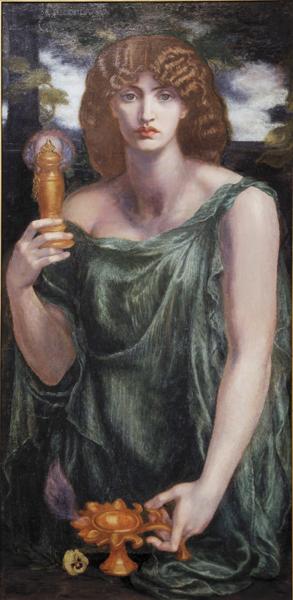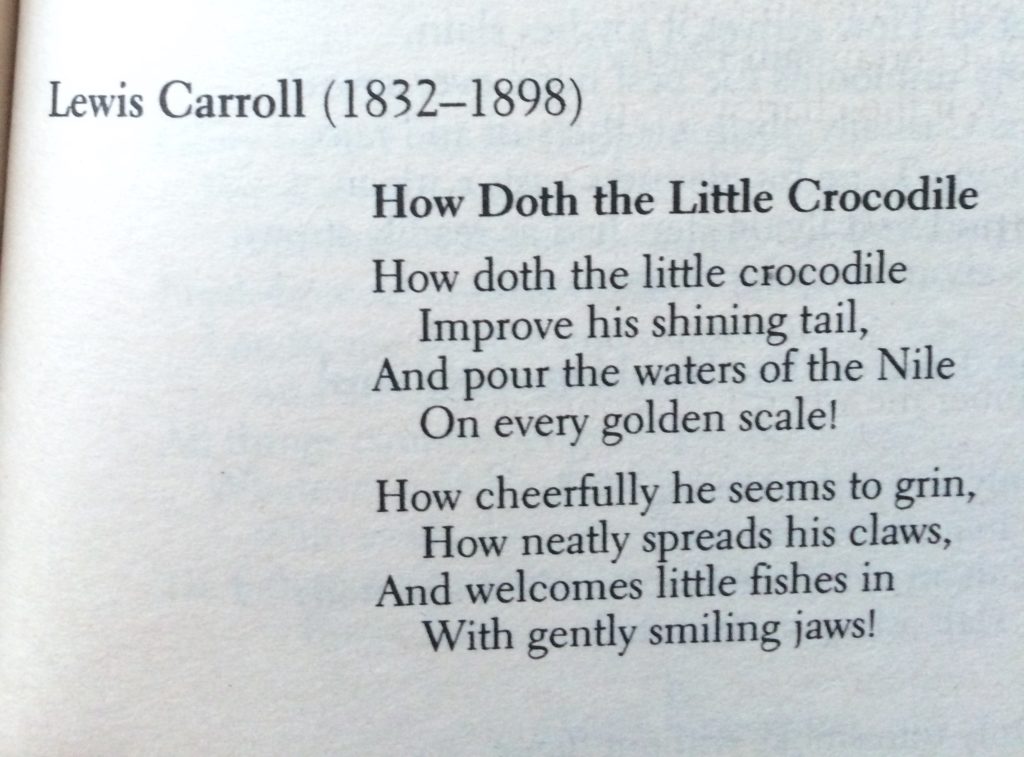
Mnemosyne, [nee-mos–uh-nee], is the Greek goddess of memory, and mother of the Nine Muses by Zeus.
Pictured is Mnemosyne by Dante Gabriel Rossetti, 1881, © Delaware Art Museum.
I’ve briefly mentioned on The Project page about my plan to commit portions of certain texts to memory. Considering that any lyric, literary line, or poem is available immediately with just a few tap-taps on a smartphone screen, why bother to memorize? Well, here are my own reasons for the memorization of literature:
- The first reason being that it’s simply a pleasure to be able to recall to my mind, instantaneously and at will, poems I enjoy and lines I love. It’s just not the same experience to recall verse or prose on my own as it is to Google it or even to look it up off a bookshelf.
- The second reason is that, in my efforts to cultivate wisdom and understanding, I believe it’s vital to feed my mind words with which to simmer subconsciously–to mull on and draw connections that it otherwise would not have seen if it didn’t contain the words within itself. In this way, I’m truly allowing books to have a deep impact on me, as my way of thinking, feeling, and seeing the world will change at the most fundamental level.
- Lastly, it’s almost like having the authors themselves perched on my shoulders, giving me guidance through various situations in life. Books are in themselves a form of time travel, reaching across the millennia to connect us all as we continue to engage in the same Great Conversation with those long since gone–and bringing some of those words directly into my head just closes the gap a little further still.
Memorization, like reading, is serious business. …And so is humor. This is why I’ll kick off the “Invoking Mnemosyne” series–within which I’ll share precisely what poetry & prose it is that I’m memorizing–with a wonderful nonsense poem by Lewis Carroll:

I had found myself thinking about Alice in Wonderland, in which Alice recites this poem. Initially, she attempts to recite “How Doth the Little Busy Bee” by Isaac Watts but, instead, “How Doth the Little Crocodile” is what comes out of her–quite unexpectedly and quite made up on the spot–due to how Wonderland is affecting her mind. “Crocodile” is a parody on “Busy Bee,” taking Watts’s poem about the virtues of busyness against the dangers of idleness, and subverting it to a new poem about the virtues of deception, which is the world in which Alice finds herself.
